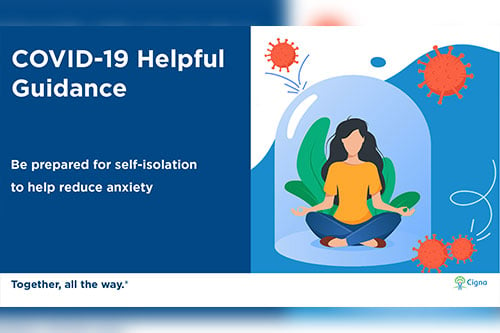

By now everybody knows about the threat the coronavirus poses to our physical health, and, indeed to the economy. But perhaps there is one threat that many of us are overlooking: loneliness.
With the UK entering its fifth week of lockdown, insurer Cigna Europe is highlighting the issue – noting that more than nine million people regularly experienced loneliness even before the pandemic began.
“COVID-19 is not only a life-threatening global health crisis - for many societies, it’s also becoming a major social crisis”, said Dr Peter Mills. “The pandemic is unprecedented for the entire world, and is having a tremendous impact on healthcare professionals, businesses, and above all, individual people. We’re having to adjust to dealing with uncertainty, working differently, having to home school children, and trying to make sure that everybody stays healthy, safe, and is physically active.”
“Feelings of loneliness can happen because of many factors, however in this current period of social isolation, it most frequently arises because of the forced separation from those we love, or due to the lack of social connections with other people,” added Dr Inge Schrever. “For this reason, it’s important to bear in mind that, despite the fact that it is a temporary phenomenon, solitude during the isolation period can, without question, significantly reduce our quality of life, negatively impacting our health and well-being, especially among the most vulnerable groups. Although the seriousness of the situation is undeniable, the good news is that, by applying certain guidelines, we can help curb the feeling of loneliness, so that our health and wellbeing are not affected during this period.”
With this in mind, the insurer is offering eight top tips that it believes can help keep your mental health on track at this time.
